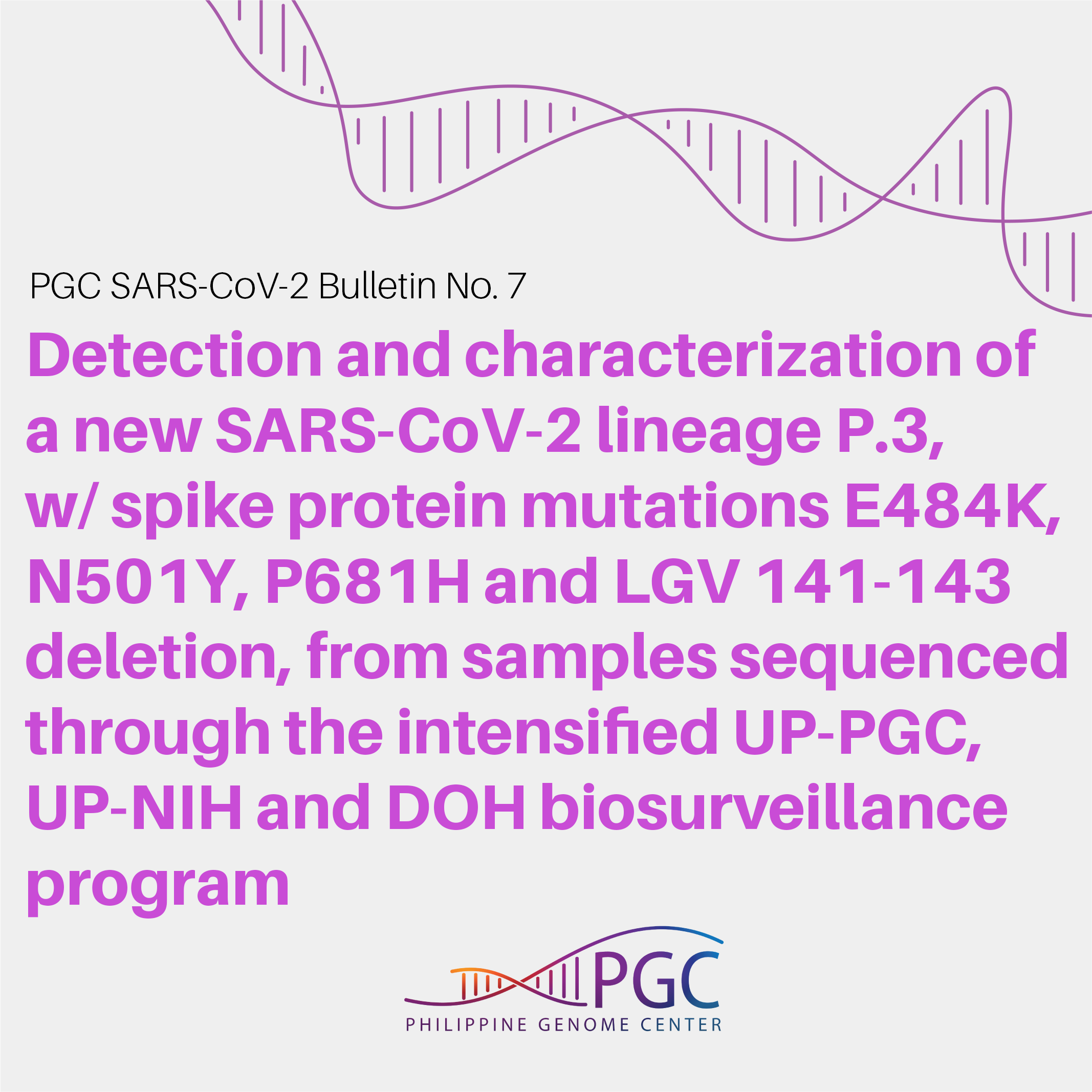A close examination of the mutation profile of the P.3 viruses revealed that apart from E484K and N501Y, they also share other spike protein mutations that are likely to have functional significance (Figure 2). This includes the P681H mutation, also found in lineage B.1.1.7 viruses, as well as a three-amino acid deletion at positions 141 to 143 (LGV141_143del).
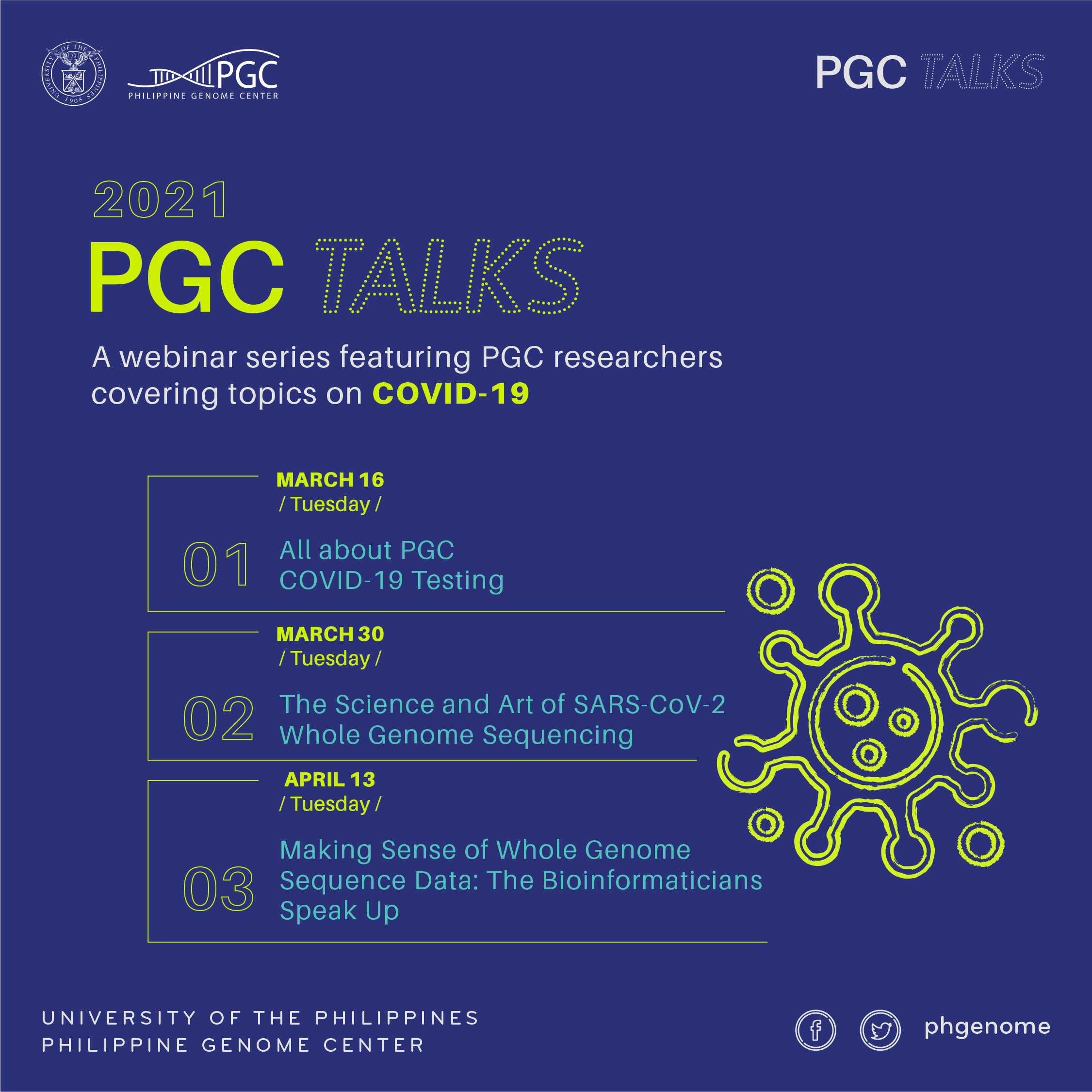
#PGCTalks to feature topics on COVID-19 testing, sequencing, and bioinformatics analysis
#PGCTalks is back! The Philippine Genome Center is hosting mini webinar series #PGCTalks featuring various PGC experts and will cover topics on DNA sequencing, bioinformatics analysis, and testing related to COVID-19.
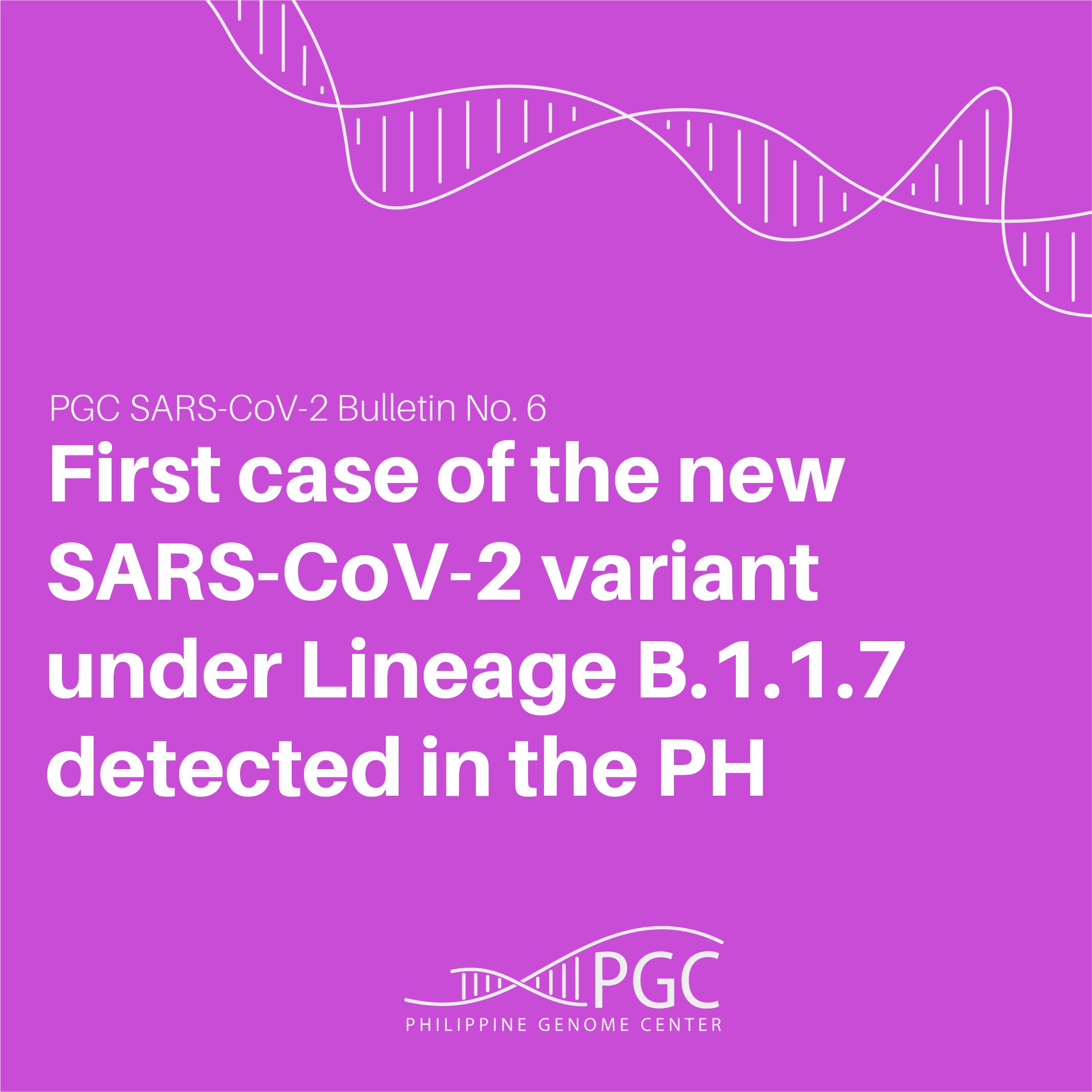
PGC SARS-CoV-2 Bulletin No. 6: First case of the new variant under Lineage B.1.1.7 detected in the Philippines
Through the biosurveillance efforts of the UP – Philippine Genome Center (PGC), in coordination with the Department of Health (DOH) – Epidemiology Bureau and the Inter-Agency Task Force (IATF) Task Force on COVID-19 Variants, we report the first confirmed case of the SARS-CoV-2 B.1.1.7 lineage, more commonly known as the UK variant, in the Philippines. An announcement of this finding can be found in an official DOH press release dated January 13, 2021.
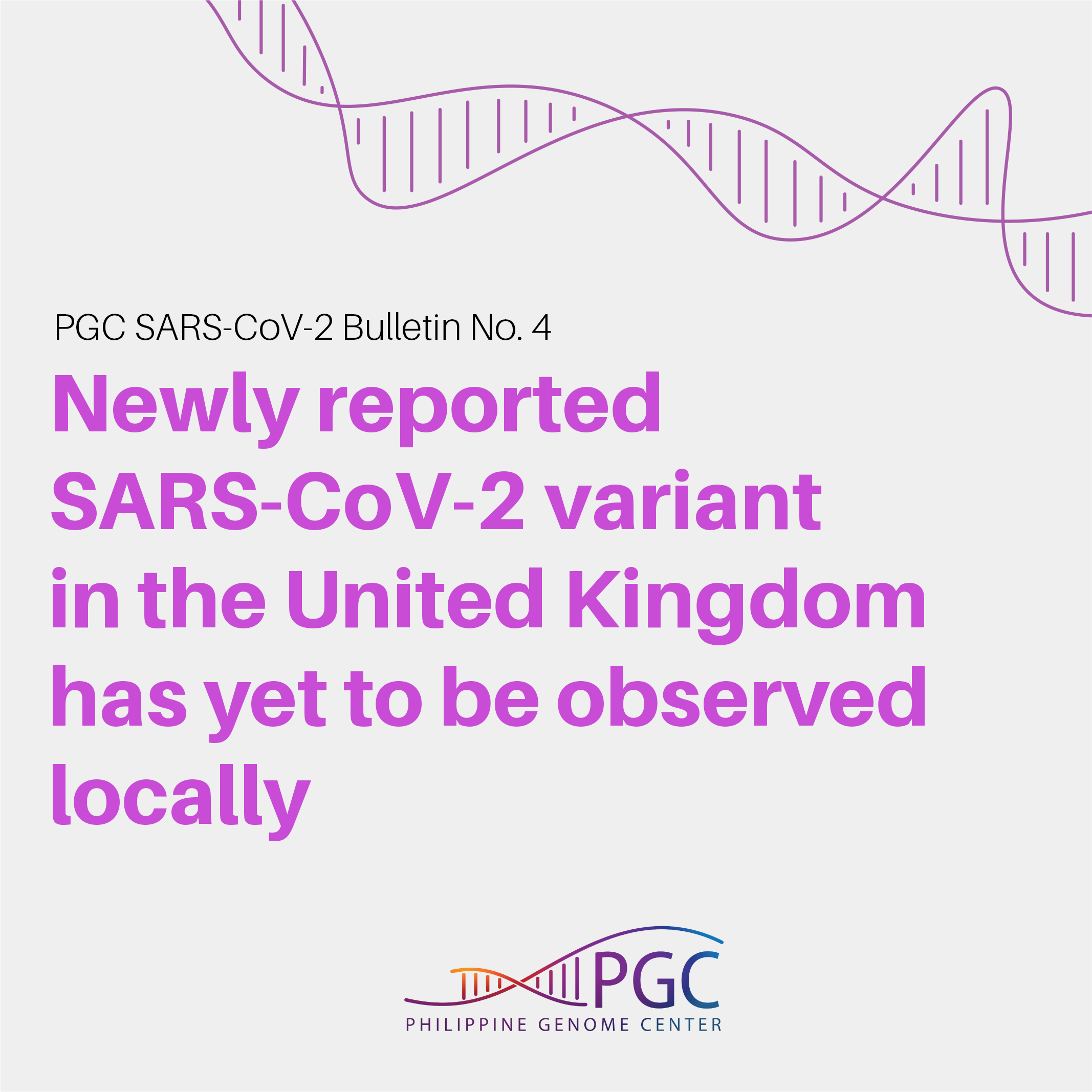
PGC SARS-CoV-2 Bulletin No. 4: Newly reported variant in the United Kingdom has yet to be observed locally
In a report posted at the Global Initiative for Sharing All Influenza Data (GISAID) website, the UK variant is said to harbor multiple spike protein mutations within a single sample, including a combination of the following: H69del, V70del(69), Y145del(143), N501Y, A570D, D614G, P681H(674), T716I, S982A, and D1118H (GISAID, 2020). While the discovery of this new UK variant appears to be concerning, the report cautions that the detailed effects of these mutations remain to be fully determined.
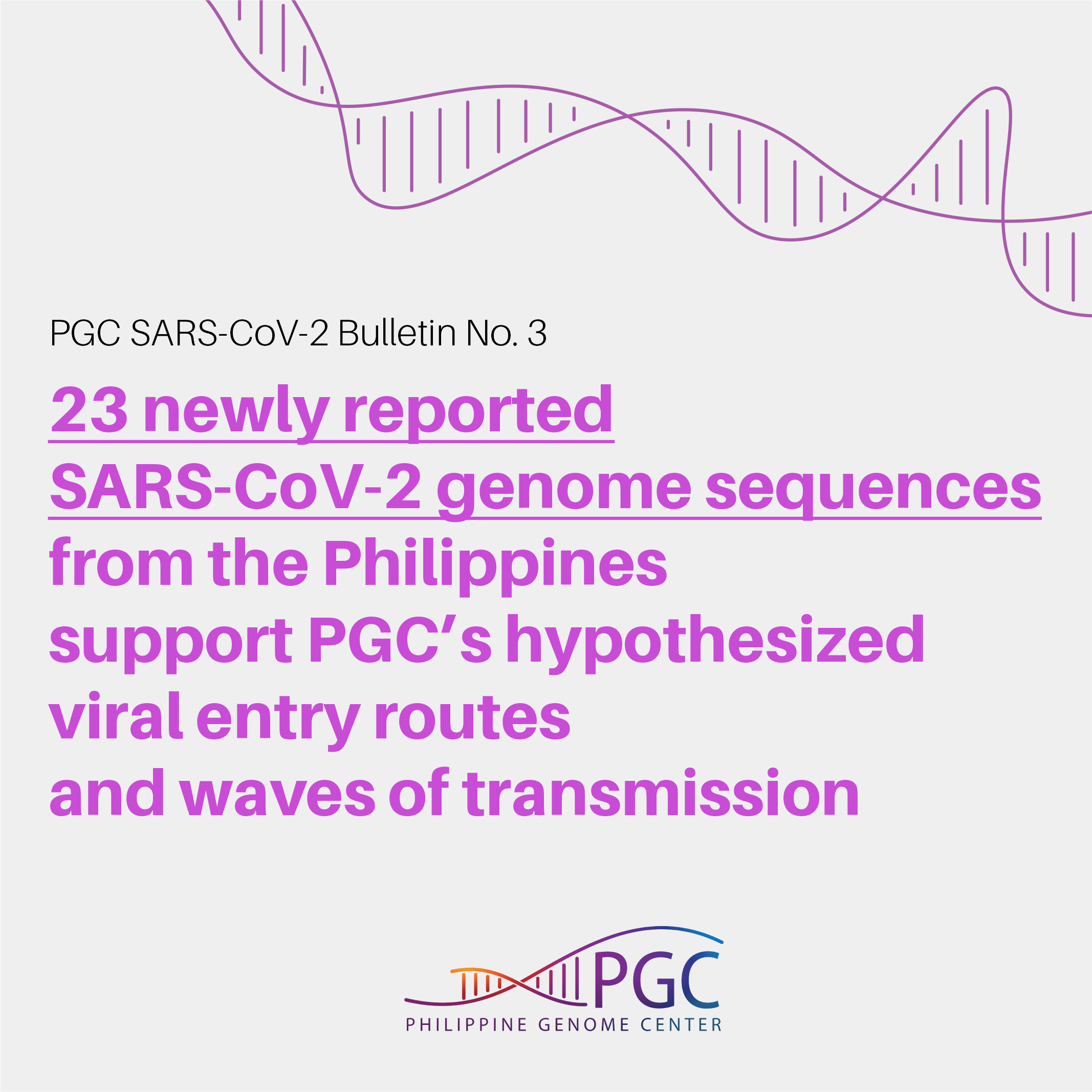
PGC SARS-CoV-2 Bulletin No. 3: 23 newly reported SARS-CoV-2 genome sequences from the Philippines support PGC’s previously hypothesized viral entry routes and waves of transmission
A group of researchers from the U.S. Army Medical Directorate–Armed Forces Research Institute of Medical Sciences, the University of the Philippines Manila, and the V. Luna Medical Center recently reported 23 new SARS-CoV-2 genome sequences from the Philippines, all of which were from cases of local transmission (Velasco et al., 2020). Among these samples, one was collected in early April while the rest were obtained in the months of June and July.
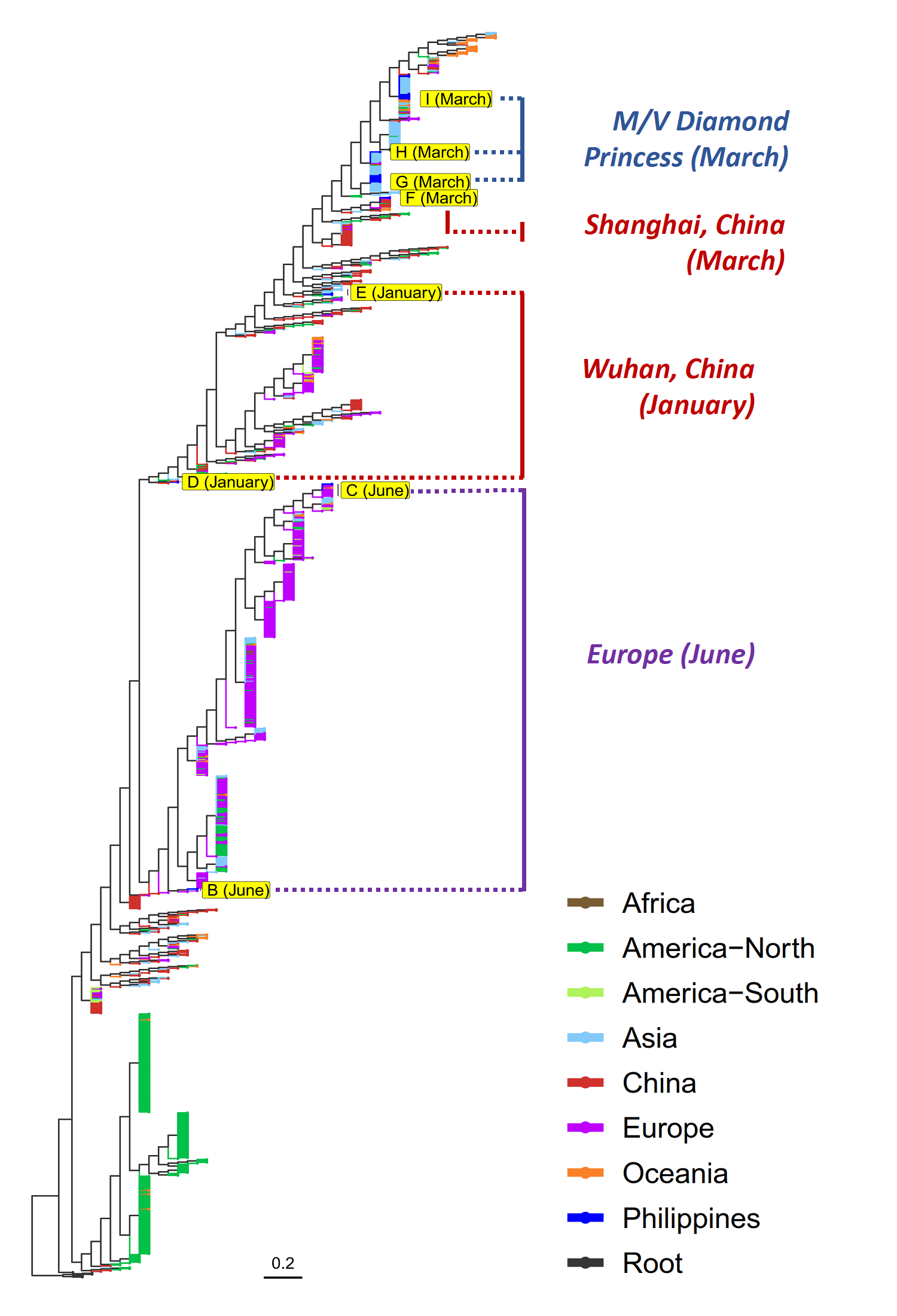
PGC SARS-CoV-2 Bulletin No.2: Three Possible Routes of SARS-CoV-2 infection in the Philippines
Majority of the Philippine submissions (18 of 23) were collected in the month of March, wherein except for one sample which clustered with isolates from Shanghai, China, all others were observed to group into clades linked to the outbreak in the cruise ship, M/V Diamond Princess, moored in Yokohama, Japan in early February 2020. Later that month, passengers and crew members of this cruise ship representing various nationalities including Filipinos, Indians, and Australians were repatriated to their home countries.
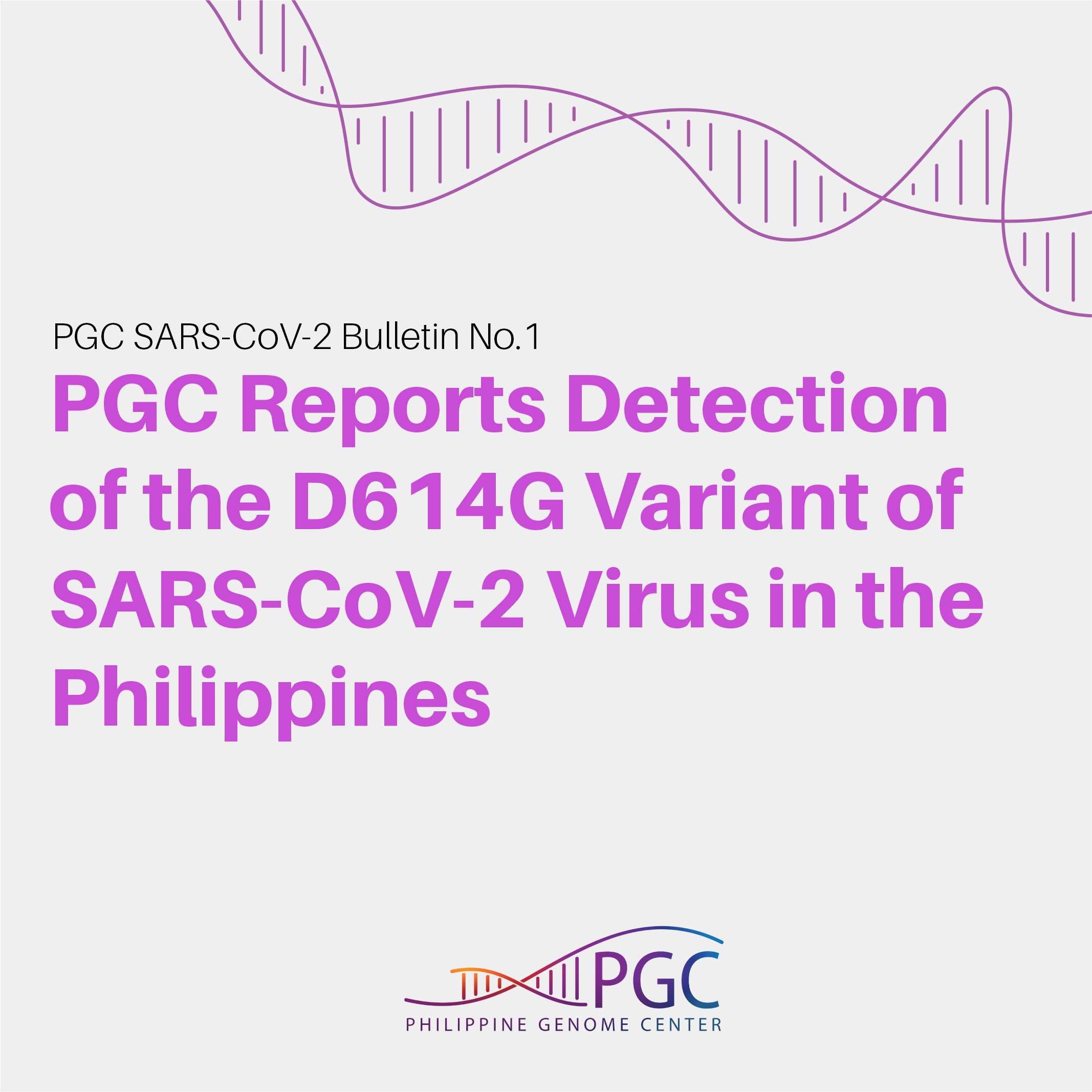
PGC SARS-CoV-2 Bulletin No.1: Philippine Genome Center Reports Detection of the D614G Variant of SARS-CoV-2 Virus in the Philippines
COVID-19 or the Coronavirus Disease 2019 is caused by SARS-CoV-2 virus, the genome of which is a single-stranded positive sense RNA that is about 30,000 bases long. It contains 11 genes and several regions have been known to be immunogenic, including different parts of the Spike (S) protein, the Nucleocapsid (N) protein, as well as the Membrane (M) and Envelope (E) proteins, which have therefore been targeted for vaccine development.
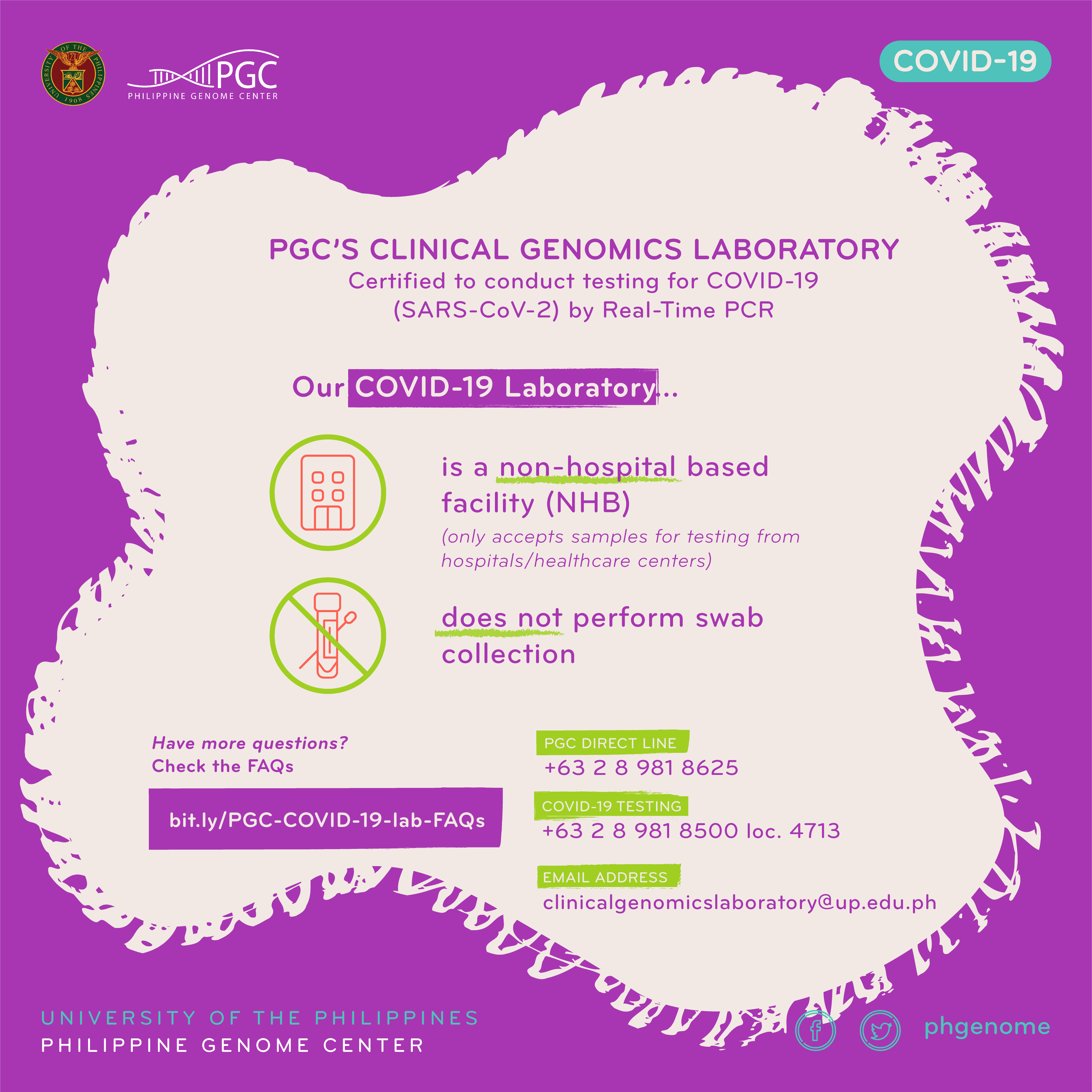
PGC’s COVID-19 Laboratory is a non-hospital based facility (NHB)
PGC’s Clinical Genomics Laboratory certified to conduct testing for COVID-19 (SARS-CoV-2) by Real-Time PCR is a non-hospital based facility (NHB)

COVID-19 Safety Tips & Precautions
PGC shares its COVID-19 laboratory safety tips and precautions through the illustrations below.
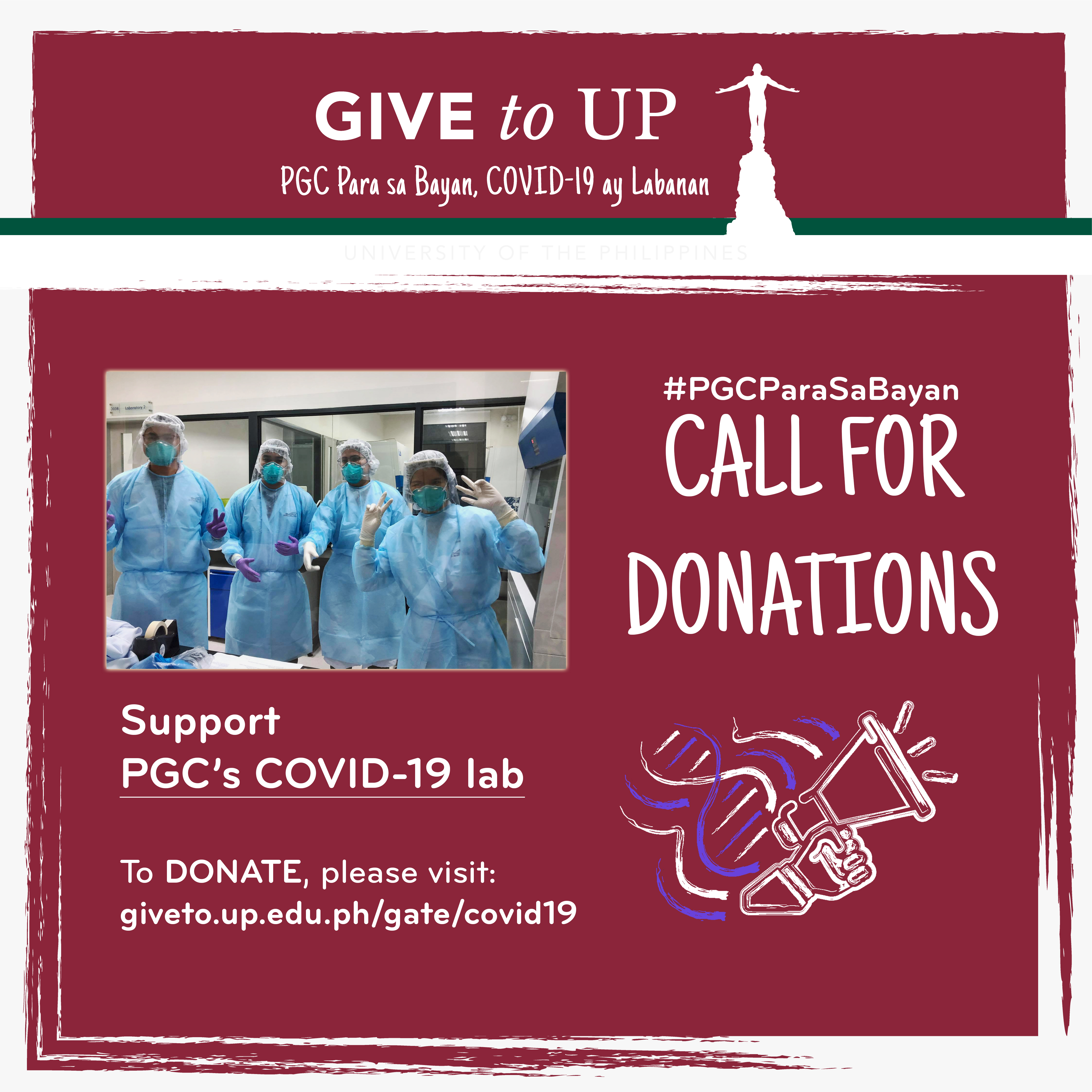
Give to UP hosts #PGCParaSaBayan donation campaign
The Office of the Vice President for Public Affairs Give to UP channel supports the Philippine Genome Center’s call for donations campaign: PGC Para sa Bayan—the call for donations aims to provide support for PGC’s COVID-19 Testing Laboratory (Clinical Genomics Laboratory) and will facilitate the procurement of essential lab supplies, additional equipment, and/or other necessary costs related to testing. The genome center hopes to maintain its operations and continue to increase its capacity as a testing laboratory.

